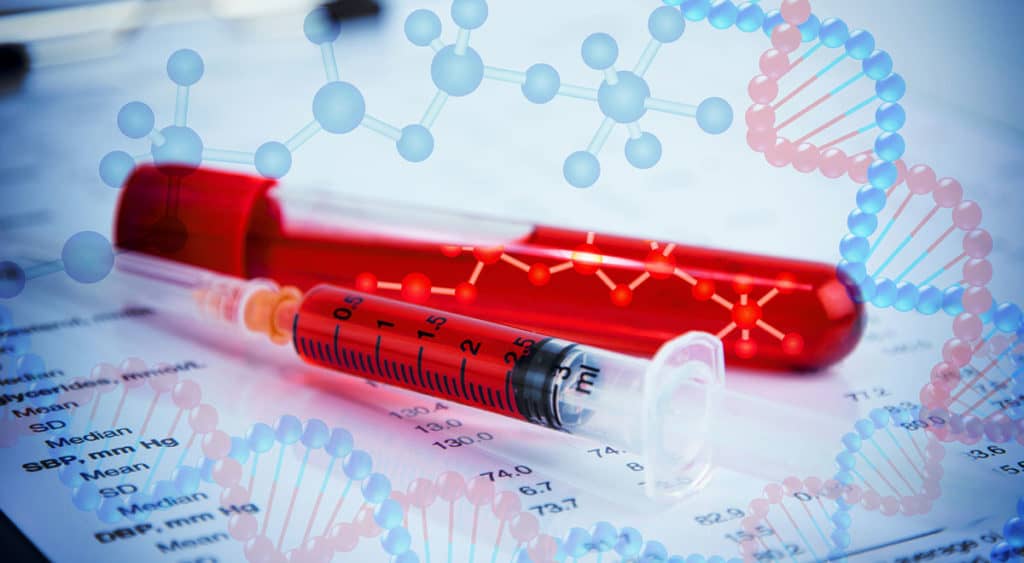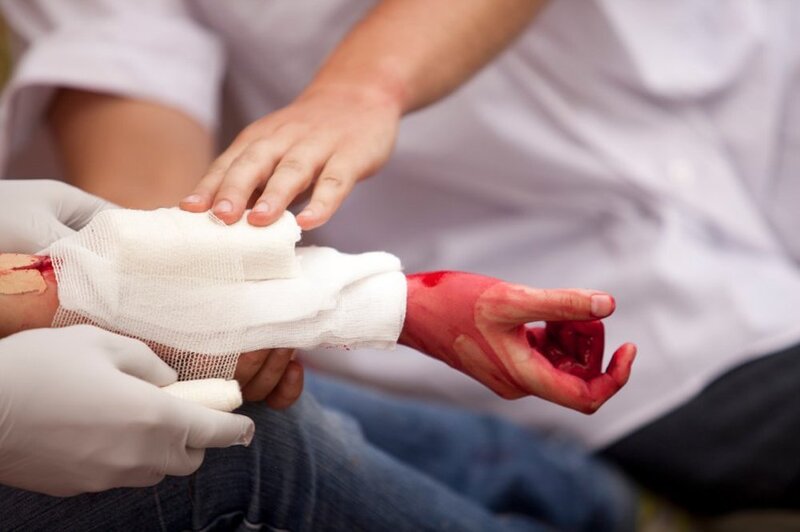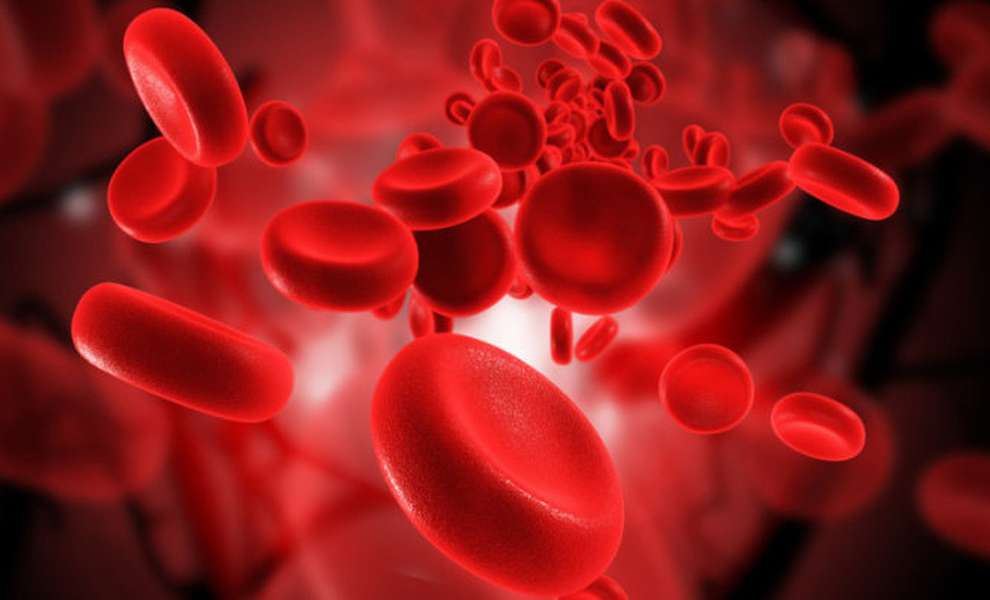Hemophilia: Causes, symptoms, diagnosis and treatment
07/01/2020
Hemophilia, also known as hemophilia, is a rare disorder in which a person’s blood does not clot as it should because of a lack of a clotting factor in the 12-factor chain. help with blood clotting. If you have hemophilia, the patient may bleed for a long time, and it is more difficult to stop bleeding after an injury than the average person. Small cuts are usually not a big deal but a bigger concern is bleeding deep inside the body, especially in the knees, ankles and elbows. Internal bleeding can damage a person’s organs and tissues and can be life-threatening.
Hemophilia is a genetic disorder so treatment includes regularly adding clotting factors to help the blood clot during an injury. So to find out more deeply what non-clotting blood disease is, there will be details in the article below.

Causes of Hemophilia
Normally when bleeding, the body will clump together blood cells to form a clot to help stop the bleeding. Blood clotting is triggered by certain factors. Hemophilia occurs when a person is deficient in one of these clotting factors. There are several types of hemophilia and most forms are inherited. However, about 30 percent of people with hemophilia have no family history of the disorder. In these people, a spontaneous mutation occurs in a gene associated with hemophilia. Acquired hemophilia is a rare condition that occurs when a person’s immune system attacks clotting factors such as:
- Pregnant
- Autoimmune disease
- Cancer
- Multiple sclerosis
- Inheritance Hemophilia
In the most common type of hemophilia, the faulty gene is located on the X chromosome. Everyone has two sex chromosomes, one from the father and one from the mother. Daughters inherit an X chromosome from their mother and an X chromosome from their father, and sons receive an X chromosome from their mother and a Y chromosome from their father. This means that hemophilia almost always occurs in boys and is passed from mother to child through one of the mother’s genes.

Most women with the defective gene are simply carriers and have no signs or symptoms of hemophilia. But some carriers may experience bleeding symptoms if their clotting factors are moderately reduced.
Symptoms of Hemophilia
The signs and symptoms of hemophilia vary widely, depending on the extent of the clotting factor deficiency. If the level of clotting factor deficiency is mild, then the patient may only have difficulty clotting after surgery or trauma. If the deficiency is severe, the person may experience spontaneous bleeding. Signs and symptoms of spontaneous bleeding include:
- Unexplained bleeding and heavy bleeding from a cut or injury, or after surgery or a dental procedure.
- Multiple large or deep bruises
- Abnormal bleeding after vaccination
- Joint pain and swelling
- There is blood in the patient’s urine or stools
- Nosebleeds with no known cause
- In infants, unexplainable fussiness
- Bleeding in the brain

A simple bump on the head can cause bleeding into the brain for some people with hemophilia. This rarely happens, but it is one of the most serious complications that can occur. Signs and symptoms include:
- Headache, prolonged
- Vomiting many times
- Drowsiness or lethargy
- Double look
- Sudden weakness or clumsiness
- Convulsions
If the patient has the following symptoms, the patient should quickly go to a medical facility for timely treatment:
- There are signs of brain bleeding
- There is an injury that causes the bleeding to stop
- Swollen joints that are hot to the touch and painful to bend
If there is a family history of hemophilia, other family members should go for genetic testing to see if they have this disease for timely treatment in the future and before making a decision. family. Complications of hemophilia can include:

- Internal bleeding. Bleeding occurs in muscles deep inside the body, causing swelling in the limbs that press on nerves and lead to numbness or pain.
- Joint damage. Internal bleeding can also put pressure on the joint causing severe pain. Left untreated, frequent internal bleeding can cause arthritis or joint destruction.
- Infection. People with hemophilia are more likely to have blood transfusions, increasing their risk of receiving contaminated blood products. Blood products became safer after the mid-1980s due to screening of donated blood for hepatitis and HIV.
- Adverse reactions to clotting factor therapy. In some people with hemophilia, the immune system has a negative reaction to the clotting factors used to treat bleeding. When this happens, the immune system develops proteins (called inhibitors) that inactivate clotting factors, making the treatment less effective.
Prevention of hemophilia
To avoid excessive bleeding and protect your joints:
- Exercise regularly. Activities like swimming, cycling, and walking can strengthen muscles to protect joints. Combat sports such as football, hockey or wrestling… are not safe for people with hemophilia.
- Avoid certain pain relievers. Medications that can aggravate bleeding include aspirin and ibuprofen; instead, use acetaminophen (Tylenol, others) for safer pain relief.
- Avoid taking blood thinners. Medicines that prevent blood clots include heparin, warfarin (Coumadin, Jantoven), clopidogrel (Plavix), and prasugrel (Effient).
- Practice good oral hygiene. The aim is to prevent tooth extraction, which can lead to excessive bleeding.
- Protect your child from injuries that can cause bleeding. Wearing cloth, rubber or leather knee protectors (Kneepads), elbow pads, helmets, and seat belts can all help prevent injuries from falls and other accidents. Keep your home free of furniture with sharp corners.
Bài viết liên quan
- How dangerous is prostate cancer?
- Overview of Acute Coronary Syndrome (ACS)
- Septicemia: Causes, signs and treatment
- 6 things to know about cervical cancer
- Hyperthyroidism and cardiovascular complications
- Some things to know about high blood pressure
- 70% of people with diabetes in Vietnam have not been diagnosed
- Patient satisfaction is top priority: Prime Minister
- Local residents get free medical service



